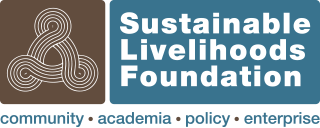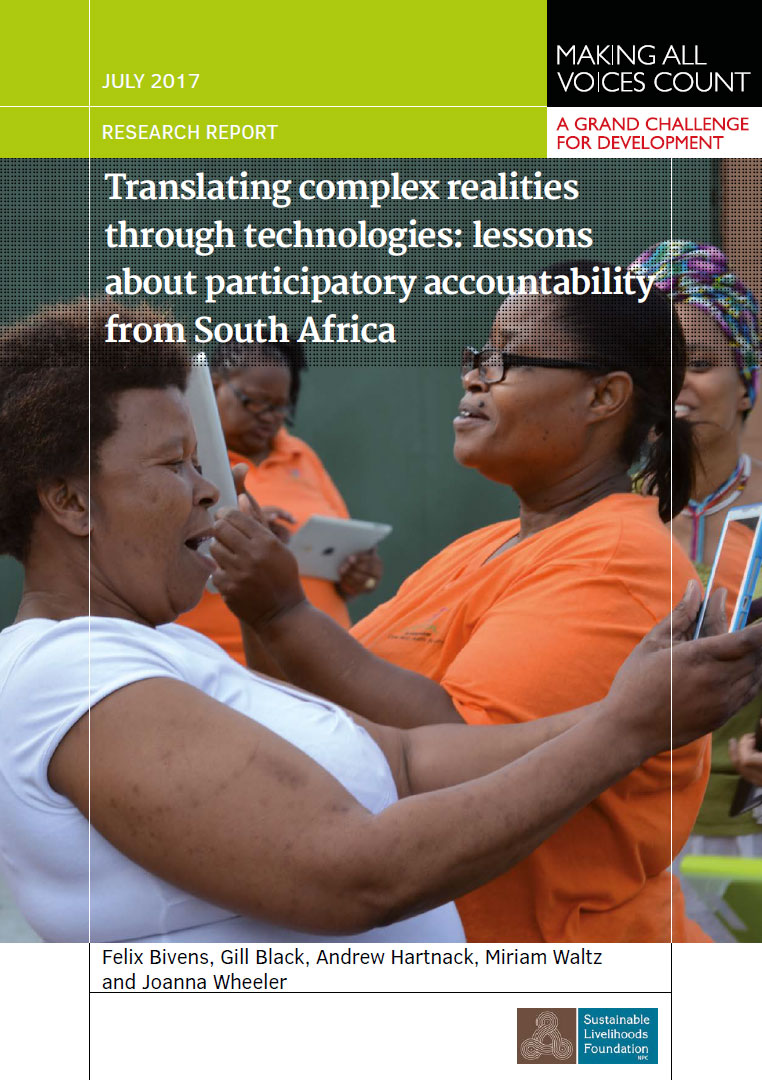This publication reports on research done by the Sustainable Livelihoods Foundation (SLF) between 2011 and 2017 to examine the multifaceted issue of accountability in South Africa. The research process employed various technology-enabled participatory methods to analyze government accountability challenges in the context of high inequality and the struggles of marginalized groups to engage with those in power. Four case studies focused on gender-based violence activists, community health workers, informal traders, and advocates of traditional medicine and indigenous rights. Through a multi-method approach, SLF facilitated collective voice-building among these groups, leveraging tools such as digital storytelling, filmmaking, and geospatial mapping. The report evaluates the efficacy of these methods to empower citizens and foster solidarity among marginalized communities. It highlights a complex interplay of factors including apartheid’s legacy, gender dynamics, religious matters and limited access to authorities. The report also reflects on SLF’s intermediary role in shaping the trajectory of marginalized groups’ efforts towards government responsiveness.

